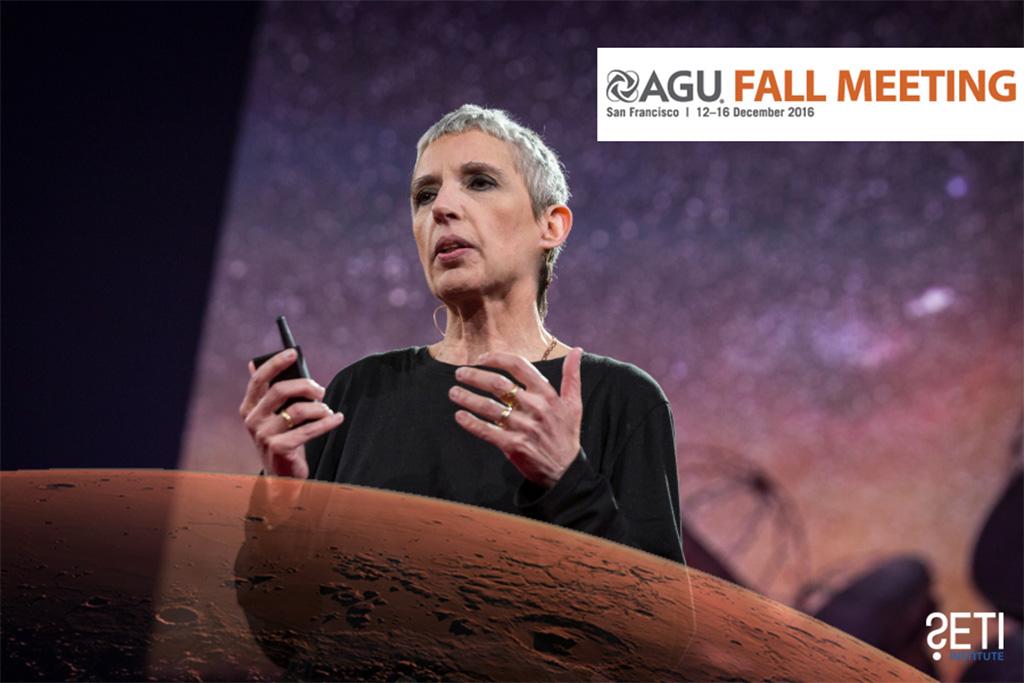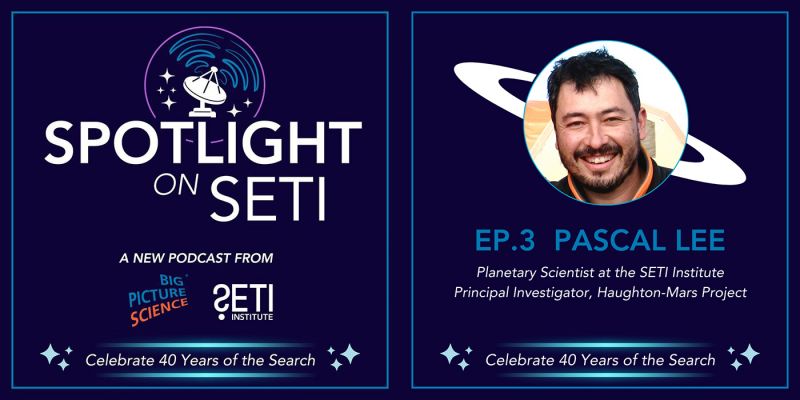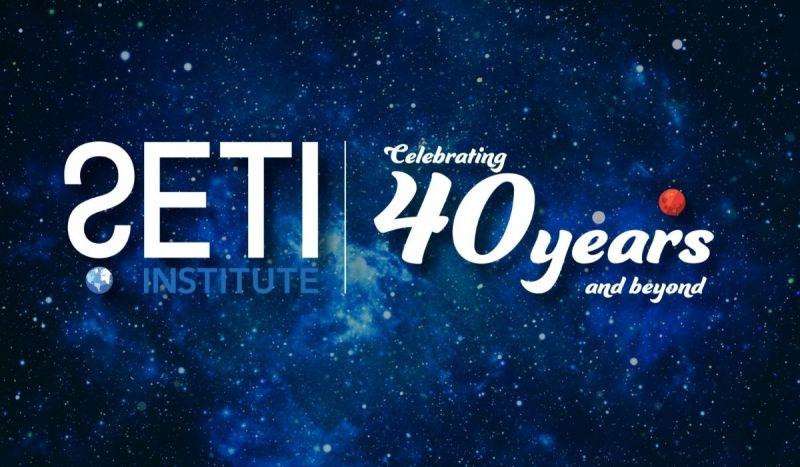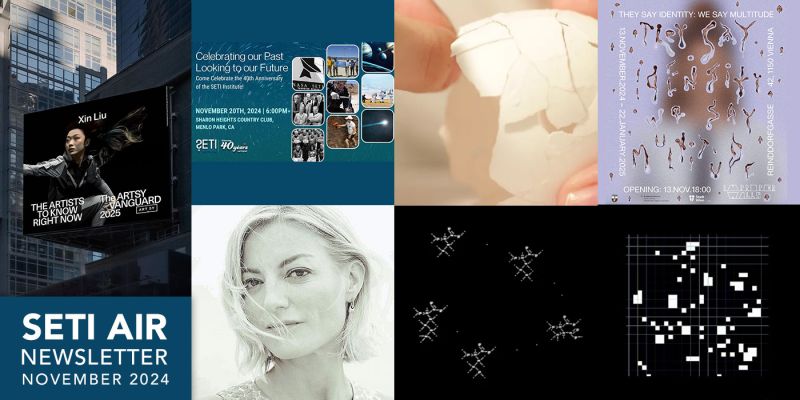
On Wednesday, December 14, at 10:25 AM PST, Nathalie Cabrol will be presenting this year's Sagan Lecture at the American Geophysical Union in San Francisco. The lecture is not open to the general public, but is available as a live stream on the day of the talk.
- Session: B32D Sagan Lecture
- Program: Biogeosciences
- Day: Wednesday, 14 December 2016
- Time: 10:25 - 11:15
- Location: Moscone West, San Francisco
- AGU on Demand: http://fallmeeting.agu.org/2016/virtual-options/
Abstract
Physicochemical and environmental conditions determine the range of possible biogeochemistries on planets and moons. Yet the Earth shows that as soon as life took hold, it modified its environment, from the mineralogy of sediments to the global composition of the atmosphere. In their evolution, life and environment are intertwined and cannot be separated. This coevolution is one of the most fundamental concepts in astrobiology, one that is central to our understanding of what, where, and how to search for life beyond Earth.
In that quest, Mars will be the first destination for planetary missions seeking biosignatures. Both Earth and Mars had shared traits during the Archean/Noachian period. However, for Mars, the impact of a different environmental evolution on the development of life and the preservation of biosignatures remains unclear. In addition to an irreversible global climate change, Mars always had greater environmental variability than Earth due to its astronomical characteristics. Biological evolution, if any, would have had to proceed in this distinct context. If parallels can be drawn, the major metabolisms supporting Earth’s biogeochemical cycles had evolved early. Understanding the succession of physical and environmental processes and their combination in the first 700 million years of Mars history is, therefore, essential to envision possible metabolisms, adaptation strategies life would have required to survive changes, and the biosignatures that could still be preserved today.
Ultimately, the astrobiological significance of exploring Mars is also about teaching us invaluable lessons about the uniqueness of each planetary experiment, regardless of similarities. Beyond the Solar System, this notion can be expanded to the search for earth-like exoplanets, and for what it means to search for life as we know it, simple or complex.





